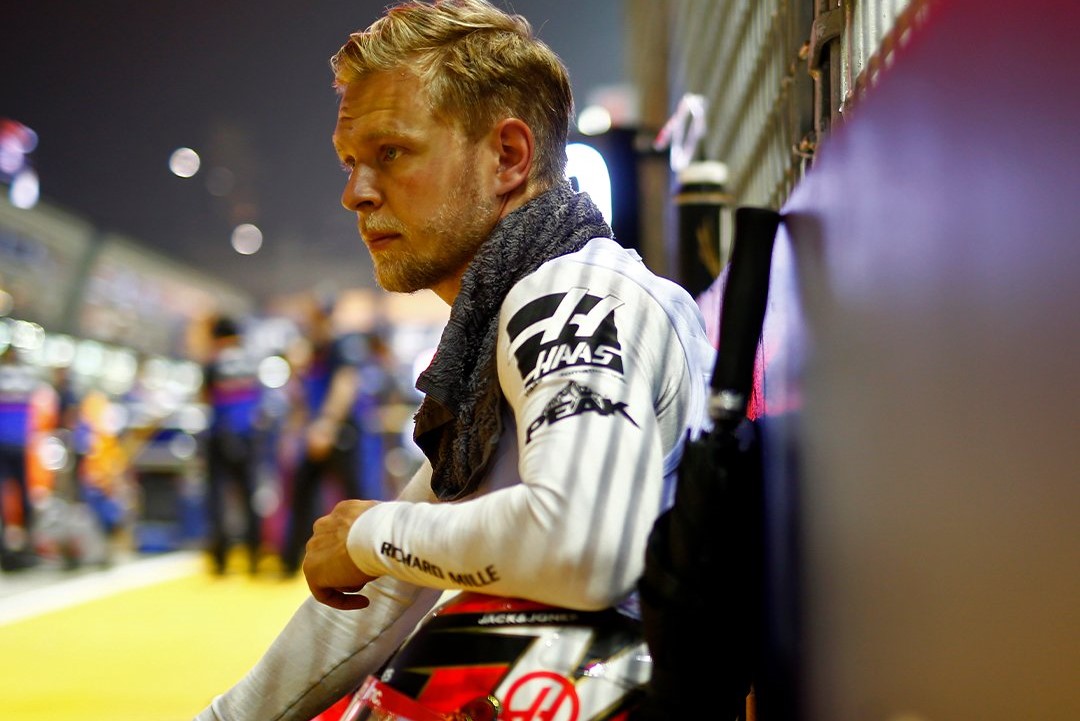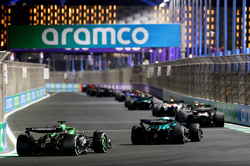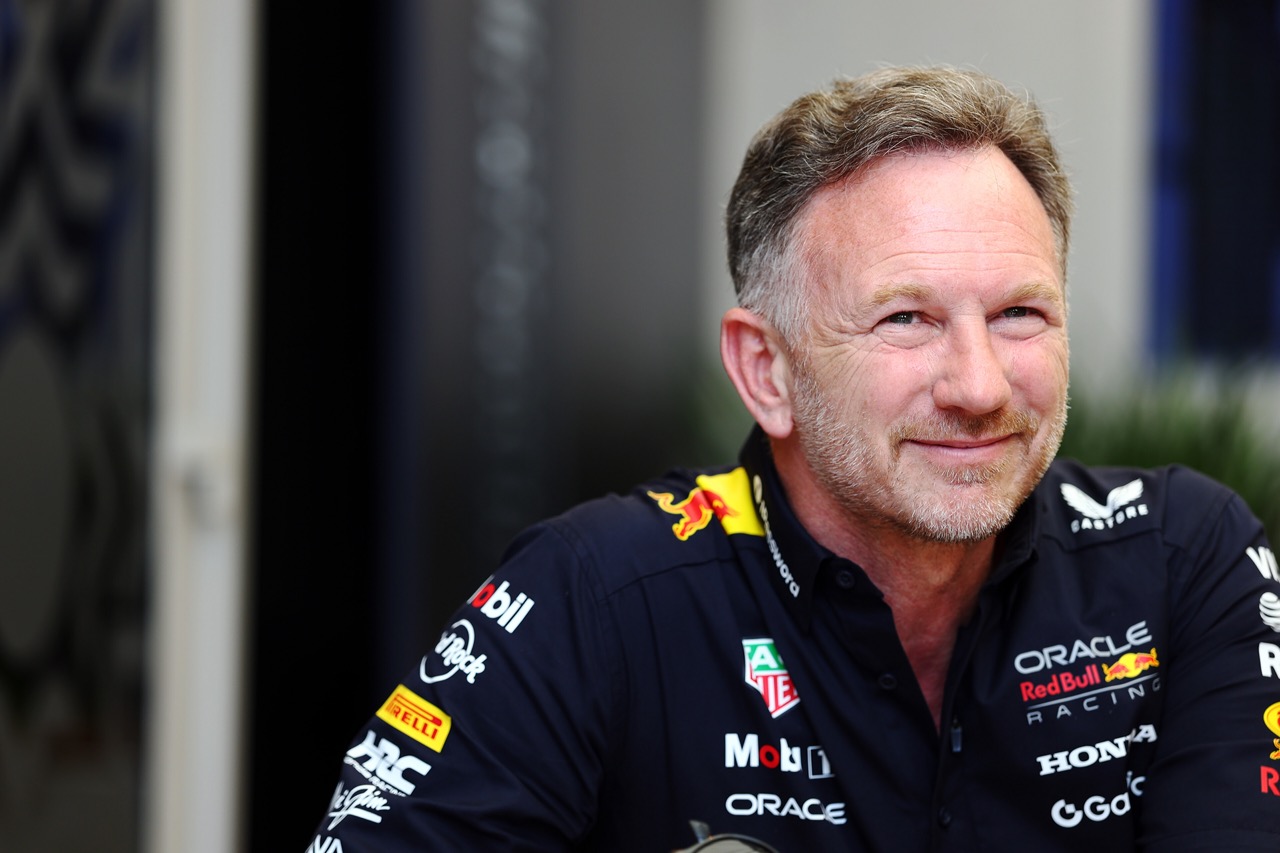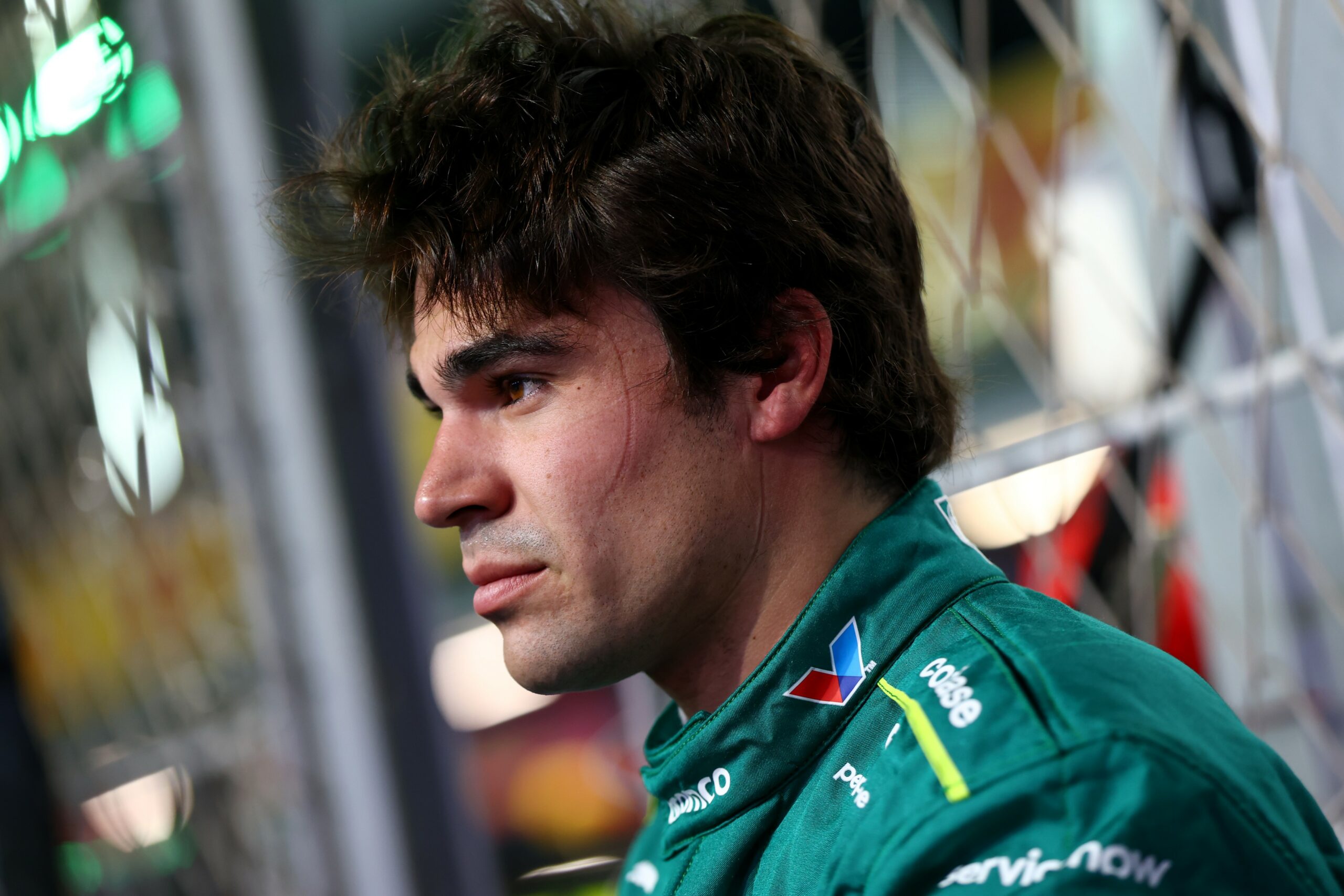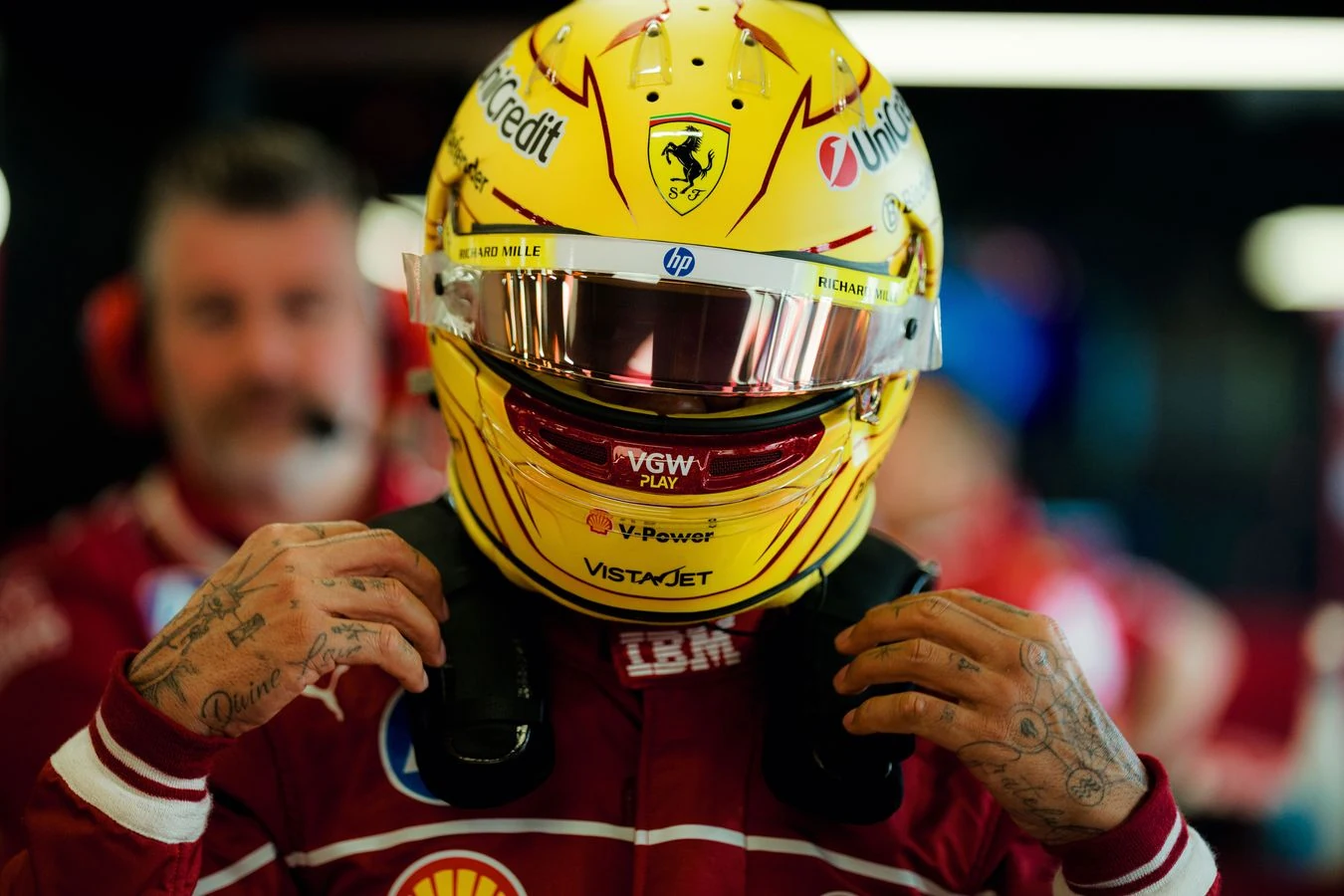Kevin Magnussen returned to the paddock this weekend in Singapore after serving a one-race ban during the Azerbaijan Grand Prix, where he was replaced by Ollie Bearman.
Having accumulated a total of 12 penalty points in a 12-month period, the Danish driver was forced to miss the round in Baku, becoming the first F1 driver to receive a race ban since Romain Grosjean in 2012.
Speaking to the media on Thursday, Magnussen admitted he enjoyed having “a little extra bonus weekend off with the family” as a result, but stayed focused and kept training to be ready for Singapore. He also mentioned being on standby to assist Haas “with advice or input or whatever” as needed.
With his penalty points tally wiped, Magnussen jokingly stated that: “You get punished and then you come back and you’re like, ‘oh, ready to f*ck shit up now!’ It’s funny how that works.”
He added: “But in a way, it hasn’t really affected me. With those points, it was annoying to have the knowledge that the next time anything happens, there’s a race ban.
“So it’s nice to know that that’s not a factor anymore. But I actually don’t think it has affected me in how I’ve driven. I’ve really tried to say, ‘look, I need to crack on here and whatever happens, happens.’
“In that moment in Monza, in all the battles I’ve had, I’ve never found myself thinking, ‘oh, I need to be careful here because otherwise I get a race ban.’ In those races before Baku, before the race ban, I didn’t think about it.”
Magnussen’s unprecedented race ban sparked discussions among drivers regarding the current penalty system, with many feeling it should be reviewed and potentially overhauled.
“I haven’t seen what’s been said but it’s nice if that’s the case,” Magnussen said.
“My own opinion is that it’s not a great situation for F1 to restrict racing in that way. It feels bad when the sport you love so much changes in a way you don’t appreciate.
“I like hard racing and I think that’s a big part of the beauty of motorsport— the battles, on the limit and slightly over. That balance between going slightly over and under the limit is what makes your race great. At the moment, it feels like they’re punishing ridiculous things. Personally, as a Formula One fan, I’d like to see the sport open up again and allow the great racing that can be seen on track.”
Magnussen agreed that the penalty points system should be revised, but acknowledged that it’s a complex issue.
“Yeah, the penalty points thing is a slightly strange one,” he said. “I think maybe it would be better to just give race bans for extraordinarily dangerous driving, or for a specific incident, and not accumulate, because then you can’t get into situations where you get punished harder than others.
“In my case, I came into the season with zero points, accumulated all of them, so I had the rest of the season knowing none of these points were running out. So I actually got punished harder because of not having had any points last year. In a way, I should have gotten some points last year.
“I just think it’s a very complex thing. For me to sit here and say, ‘look, we should do this, this, this, that would be the right way forward’ is very difficult.”
When asked about an alternative approach, Magnussen brought up his experience in IndyCar in 2021, prior to being called up by Haas again at the start of the 2022 season.
“But I’ve raced in IndyCar,” he said. “I’ve watched the races on television, and I think they have it going over there. They have fantastic racing. The drivers are respectful to each other. They’re left with that responsibility in their hands, and I think that works.
“It has to be tough. These cars are put on track with the knowledge that they might get damaged, and if they do, then the driver that damaged his car gets penalised naturally.”
Magnussen added: “I think the only thing that is different in Formula 1 to IndyCar are the tracks. The tracks are not great for racing, with all this track limits stuff, I got all my penalty points pretty much for track limits.
“At the end of the day, I think that’s kind of stupid, to be a few centimetres out of a white line and end up with a race ban because of that..It’s not the sport I love.”
Magnussen suggested the FIA needs to “trust the drivers” more when it comes to racing wheel-to-wheel, while punishing the more dangerous manoeuvres accordingly.
“The GPDA has some influence,” he said. “I think I can feel the FIA kind of seeing…I feel like they know it’s not the right way at the moment.
“Hopefully, they will open up and realise that they need to trust the drivers. Of course, there are things that you have to clamp down on. There are things like moving under braking and reacting to movement. There are dangerous things that you should clamp down on, but apart from the little things, just let it go.”
The Haas driver also agreed that the existing penalty points system doesn’t reflect the realities of the rapidly expanding race calendar, which now consists of twenty-four rounds of racing, including six sprint weekends.
“When that point system was introduced, there were less races, so obviously there’s less chance of hitting the limit. That’s also a factor.”

